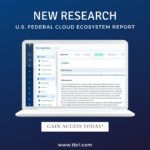Human at the Center: EY Combines Data and Corporate Social Responsibility to Solve World Hunger
In June 2023 TBR attended an awards ceremony for the EY Open Science Data Challenge, which gave a glimpse into how well the firm mixes data and corporate social responsibility programs to solve society’s biggest problems. EY’s FY23 challenge focused on rice production in Vietnam. It asked participants from around the world to use data sets from NASA satellites and Microsoft’s Planetary Computer to build models that identified areas where rice is cultivated and forecasted yield based on those areas.
Harvesting Data to Help Solve World Hunger
Over 13,000 participants from 110 counties registered for the competition, with the majority of individuals spending more than 100 hours working on building the models. The finalists were split into two categories — EY staff and university students — and each category consisted of two levels. Level 1 participants built models that identified the areas where rice is cultivated, while Level 2 participants focused on the forecasted yield for those areas. EY hosted Level 2 finalists in New York City, where attendees got to hear firsthand how participants approached and solved the challenge.
Although contestants were working toward a common goal, no two model submissions were the same, as one EY executive pointed out, which made tackling food security an even more dynamic and competitive challenge. Model simplicity, efficiency of processing power, and, of course, business presentation skills were among the key attributes used to pick the winners.
It’s All About Business Outcomes and Use Cases, Even in an AI-augmented World
EY’s value proposition continues to revolve around business-led, technology-enabled discussions — a message that was amplified in the presentations of the internal finalists. Solving world hunger is not an easy task, and it will take more than a single data model to address the challenge. But EY’s involvement and investment in the challenge provides ecologists, policymakers and nongovernmental organizations with ammunition to fight hunger, as EY makes the winning challenge models freely available for noncommercial purposes.
In EY’s world of possibilities, business use cases set a pace and course of investment. During the ceremony, France-headquartered carbon credit consultancy CarbonFarm presented four use cases in which finalists’ models could be applied to help solve key problems. These use cases included formulating a climate adaptation strategy in Vietnam; informing public policy interventions in Telangana, India; using parametric crop insurance for smallholder farmers; and making agricultural supply chains more transparent and efficient.
EY’s annual Open Science Data Challenge is a natural extension of its efforts to recruit highly skilled talent but also promotes a culture of entrepreneurship; this year’s internal candidates came from across EY’s service lines and many did not have formal AI or machine learning training but took the time to learn how to code in their spare time. EY sees these recruitment opportunities as another node in its already humble approach to building an ecosystem, in which participants play complementary roles rather than constantly competing with each other, further elevating EY’s Human at the Center framework.
Microsoft and Cornell University were also present at the ceremony and have been involved in the competition in prior years. Using the power of the ecosystem will allow EY to remain at the edge of innovation and scale the impact of data and AI to solve societal problems. As generative AI continues to dominate the news cycle, concerns about bad actors and misuse of algorithms can quickly turn the value of and opportunity around the technology into a societal threat.
EY’s role as a solutions broker, along with the firm’s investments in data, AI and talent, places a greater expectation on EY to ensure technology governance guardrails are established from the get-go. We believe EY is aware of its own strengths, as the firm continues to collaborate with partners, including technology and services companies, to ensure it maintains service quality and protects its brand while working to solve broader societal problems.
EY’s 2024 Open Science Data Challenge will focus on using satellite data to manage coastal resilience and climate change.



 Technology Business Research, Inc.
Technology Business Research, Inc.
EY Puts People First: Navigating Growth with Human-Centric People Advisory Services
/by Patrick Heffernan, Practice Manager and Principal AnalystIn early 2023, TBR met with EY’s Kim Billeter, Americas People Advisory Services leader, Jonathan Sears, Global People Advisory Services Technology leader, PAS US-East leader, and Simon Stanaway, Americas Mobility leader, to discuss progress EY has made in growing People Advisory Services (PAS) within a highly competitive market and during a pandemic..